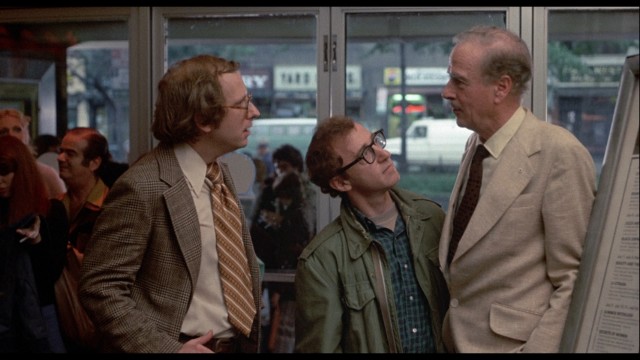The debate over intent vs interpretation is probably as old as time. I bet cavemen were pontificating the cross-tribal politics of their drawings, and if it meant that Zog’s story of taking down that Cheetah was intended as a statement promoting the hammer-chucking over spears. Zog probably thought he was just telling a story where he happened to have a hammer when Cheetah sprung on him, and it was solely a thrilling story about self-defense and valor.
The human brain looks for patterns in everything. We see a cloud, and it could look like a schooner. The Rorschach Test is based on our subconscious desire to read interpretation into nothingness. Some tests actually have intent built into them, but many tests are just inkblots meant to evoke a mood more than anything. Reading meaning into nothing is hardwired into our brains. It goes into overdrive when we know there’s supposed to be meaning to something.
In high school, one of the things we’re taught is to build mountains out of molehills. In my senior English class, I was taught that in The Scarlet Letter, Pearl could represent any number of different things, including a clitoris, all supported with examples in the text. We were also taught to read a variety of politics into Thomas Hardy’s The Return of the Native, and look for the deeper political meanings in an body of work. Of course, in these classes, we weren’t given any outside material, having to respond to the text itself. With most of these texts, the authors also weren’t around to react with horror about the interpretations given their work.
Woody Allen commented on the debate in Annie Hall, when a loudmouth is shouting his own ideas behind Alvy and Annie in a ticket line at a movie theater. The Man in Line started ranting about Marshall McLuhan, leading Alvy to bitch about the guy’s ideas to the audience. When The Man in Line defends his ideas, stating he’s an academic and teaches McLuhan, Alvy pulls McLuhan out from behind a sign, and McLuhan says, “You know nothing of my work. How you got to teach anything is beyond me.”
The debate over authorial intent vs reception is all about whether a work can have meanings that either the author didn’t put in, or that run contrary to the author’s intent. The Man in Line could probably fire off a few essays about reinterpreting Marshall McLuhan’s original work, using McLuhan’s own work as his source material; but, if McLuhan’s work was really about X while The Man in Line interprets Y, who should we believe?
This year, I have noticed a resurgence in the debate over authorial intent vs interpretation. There have been a lot of articles with people reading political interpretations into a film that never intended to have such an interpretation, or where the authorial intent is just flat out ignored or even dismissed. The latest is Charles Bramesco’s debate over the Objectivist interpretations in The Incredibles, where Bramseco openly acknowledges that Brad Bird never intended the movie to have such a meaning. But, that pales in comparison to the think pieces over the gender politics of Gone Girl, the political meanings of Snowpiercer, and probably what Nolan means to say with Interstellar.
One of the unexpected highlights of the year was the minor resurgence in the debate of the political meanings of Sleepaway Camp. Many progressive viewers had interpreted Sleepaway Camp as a Homicidal spin on the traditional slasher film. The reading that many put into it was that being forced into the wrong gender role fucks up the brain of the child. Without that interpretation, it’s just a regressive Tranny Killer movie. With the new commentary on the DVD, the progressive interpretations unintentionally fell to the wayside as the director revealed he just thought it was a good shock.
Similar to that was my experience, ages ago, watching Freeway with the commentary. Freeway is an exploitation reinterpretation of Red Riding Hood. Reese Witherspoon’s Red is picked up by Kiefer Sutherland’s Wolf, intent on killing then raping her. Red kicks the Wolf’s ass without a lumberjack. They all end up at Grandma’s house where the predatory Sutherland ends up dead. The movie projects a good amount of strong feminist leanings, but the DVD commentary was almost all Matthew Bright leering over the girls, saying the movie was his Ode to Girl. The DVD commentary gives the movie an R.Crumb esque leering to it.
Who gets primacy? If Gone Girl can be read as both a misogynistic embodiment of all masculine fears demonizing women and a feminist rallying call similar to the SCUM Manifesto, yet Gillian Flynn intended it to be a satire of expectations and social norms, who gets primacy? If people can read Snowpiercer as a liberal rallying cry, a conservative cautionary tale against repression, and an anarchic screed, would the author’s intent matter?
Woody Allen, as an author, thinks that his authorial intent should be the most important, and everybody who disagrees is wrong. Brad Bird thinks people reading Objectivism into The Incredibles is just as absurd as those reading lefty politics into The Iron Giant. Gillian Flynn is probably just laughing her way to the bank.
Is there enough room for conflicting opinions? Or, can two people with opposite ideas be right?

